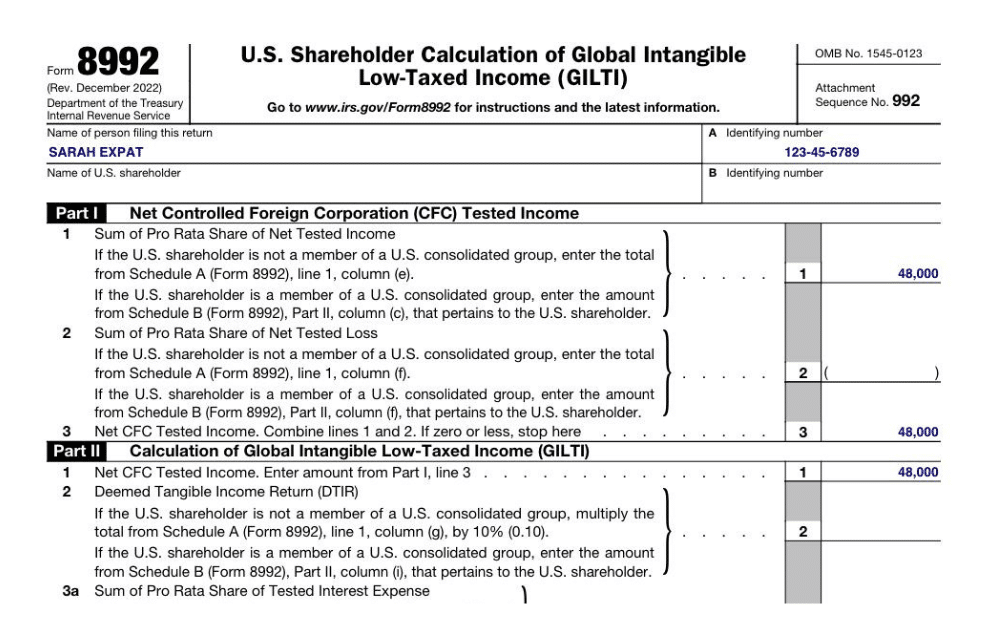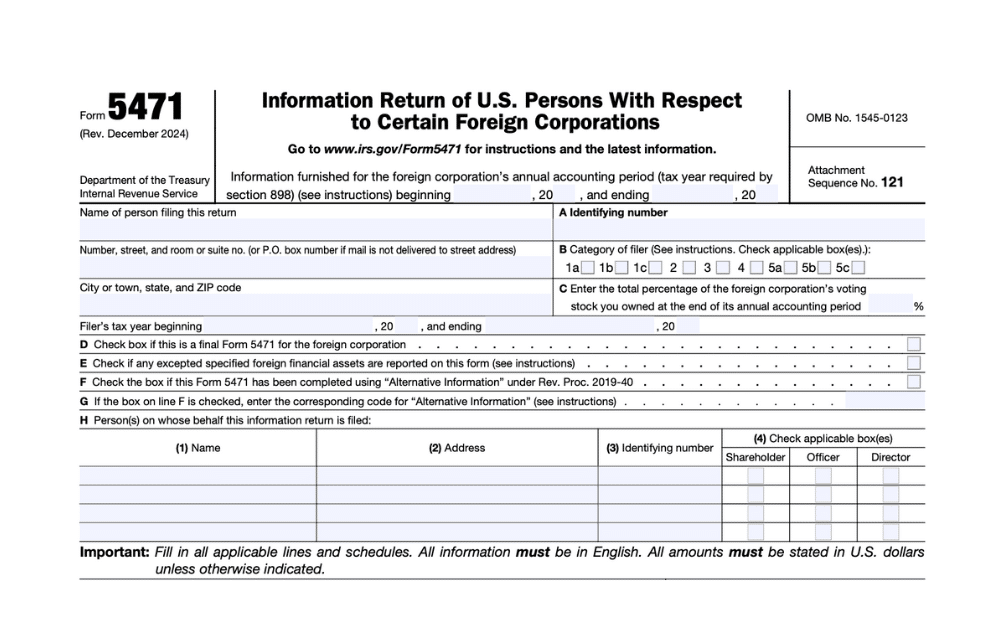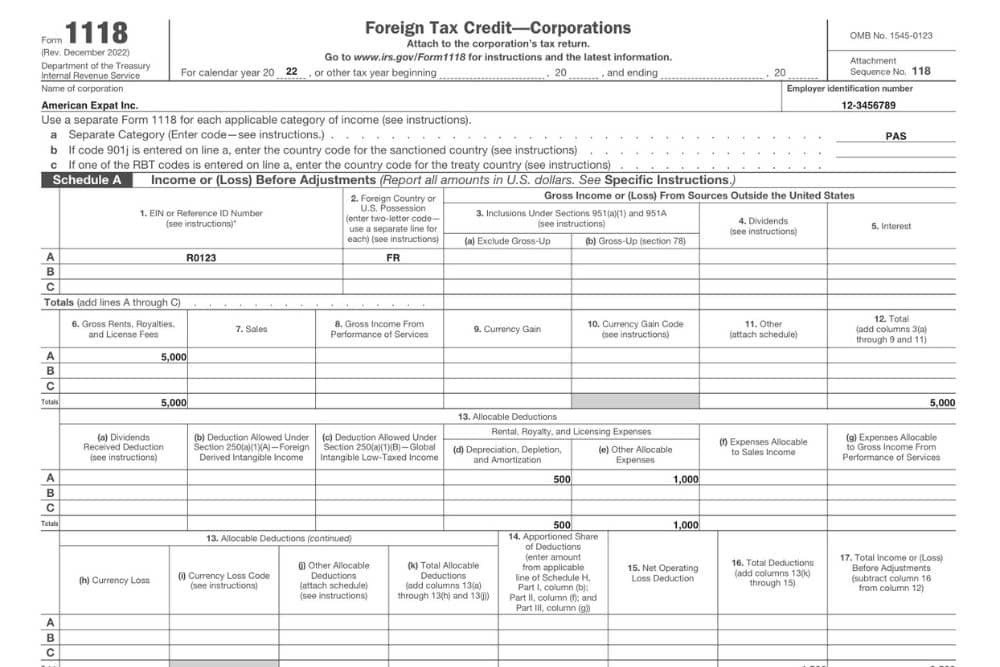Understanding the GILTI High Tax Exception [2025]
![Understanding the GILTI High Tax Exception [2025]](https://www.greenbacktaxservices.com/wp-content/uploads/2024/02/GILTI-high-exemption.png)
As a US shareholder in a controlled foreign corporation, the GILTI high tax exception could help you save on your tax bill. Here’s how.
Key Takeaways
- The GILTI high tax exception lets CFC shareholders reduce their taxes by excluding certain high-taxed foreign income from GILTI calculations.
- To qualify for this exclusion, GILTI income must be taxed by a foreign government at a rate that is 90% or more of the highest US corporate tax rate.
- Long-term tax implications must be weighed, as the election can affect eligibility for other foreign tax credits.
What Is GILTI?
Global intangible low-taxed income (GILTI) refers to a wide range of income types earned by a controlled foreign corporation (CFC). For other types of corporations, a shareholder is not taxed on the corporation’s current income. Shareholders are only taxed on dividends they receive and when they sell their shares. US shareholders can be taxed on a CFC’s GILTI. But using the GILTI high tax exception, you may be able to shield yourself from this tax.
What Is the GILTI High Tax Exception?
The GILTI high tax exception is designed to prevent double taxation on income already taxed at a high rate abroad. This exemption allows US shareholders of CFCs to exclude certain high-taxed income from their GILTI calculation.
Specifically, income that is taxed at a foreign rate higher than 90% of the US corporate tax rate does not have to be included when calculating a GILIT tax liability. Because the current corporate tax rate is 21%, that would mean any GILTI taxed higher than 18.9% qualifies for exclusion.
Key Parts of the GILTI High Tax Exception
Effective Foreign Tax Rate
The effective foreign tax rate is the threshold that determines eligibility for the GILTI high tax exception. Currently, it is set at 18.9%. If the income from a CFC is taxed at a rate above this threshold in the foreign country, it can be exempt from GILTI. However, that rate will change if the US corporate tax rate is altered.
Plan for currency fluctuations. Changes in exchange rates can affect the effective rate of tax paid on foreign income, potentially impacting your eligibility for the high tax exception. Consider this in your tax planning and risk management strategies.
Flexible Election
The GILTI High Tax Exception is elective, meaning that taxpayers must actively choose to apply it. Once made, the election is binding for the year it is made and all future years unless revoked. Treasury regulations allow for some flexibility in making and revoking the election, giving taxpayers the ability to adapt to changes in their business operations or tax laws.
Impact on Foreign Tax Credit
Electing to use the GILTI high tax exception could have an impact on the Foreign Tax Credit (FTC). By excluding high-taxed income from the GILTI calculation, you may affect the amount of FTC available to offset US taxes on foreign income. The rules governing the carryover and utilization of these credits in the context of GILTI are nuanced and require careful consideration. Consult a qualified expat tax professional to learn more.
GILTI High Tax Exception Examples
Example #1
Alan is a US shareholder in a manufacturing CFC based in Germany. The German government taxes the CFC’s income at a rate of 26%. Since this rate exceeds the effective foreign tax rate threshold (18.9%), the income can be excluded from the GILTI calculation using the GILTI high tax exception. John can reduce his tax bill significantly.
Example #2
Michelle owns a CFC operating in the UK, which generates income from financial services. In the UK, her CFC’s services are taxed at a rate of 17%. Because this doesn’t meet the high tax exception threshold (18.9%), it remains subject to the GILTI tax.
Example #3
Amos is a shareholder in a CFC operating in Costa Rica. The Costa Rican government taxes his income at 24%. Currently, this exceeds the GILTI high tax exception of 18.9%, and Amos is protected from the GILTI tax.
However, Amos is concerned that the US corporate tax rate may increase to 28% in the coming years. If this happens, the effective foreign tax rate will increase from 18.9% to 25.2% (90% of 28%). This would then open him up to the GILTI tax.
Dreading the last minute scramble pulling together your tax documents? Despair no more! This simple checklist lists the documents you need to have on hand when preparing to file.

What US Shareholders Need to Know
Enhanced Tax Planning Opportunities
The GILTI high tax exception offers significant tax planning opportunities. Many US shareholders can adjust their tax profile to capture this tax benefit, potentially reducing their liability. This may involve restructuring business operations, altering investment strategies, or reconsidering the jurisdictions in which they operate.
Compliance and Reporting Complexities
While the GILTI high tax exception offers benefits, it can also complicate your tax burden. Shareholders must navigate complex regulations to determine if they qualify for the exception. This includes calculating the effective tax rate of foreign income, understanding the nuanced distinctions of GILTI income, and accurately reporting your worldwide income on US tax returns. Because of this, we recommend seeking advice from a tax professional who specializes in foreign income.
Impact on Future Tax Liabilities
The decision to use the GILTI high tax exception can have long-term consequences. Electing the exception for certain income may have implications for the availability of foreign tax credits and the overall US tax liability in future years. US shareholders must weigh the immediate benefits of reduced GILTI inclusion against the potential for increased tax liabilities in the future, especially in light of fluctuating foreign tax rates and potential changes in US tax law. Having multiple CFCs in several countries adds to the layers of complexity.
While the GILTI high tax exception can offer significant savings, don’t overlook other opportunities for tax efficiency, such as the foreign-derived intangible income (FDII) deduction or making a Section 962 election.
GILTI High Tax Exception FAQ
Can any US shareholder of a CFC utilize the GILTI high tax exception?
Yes, any US shareholder of a CFC can utilize the GILTI high tax exception, provided they meet the criteria, namely that the foreign income is taxed at a rate above the specified threshold (90% of the US corporate tax rate).
Can the GILTI High Tax Exception be applied retroactively?
Taxpayers cannot apply the GILTI High Tax Exception retroactively in the initial election. However, they may file amended returns for open tax years if they did not make the election in those years and it would have been beneficial.
Is the GILTI high tax exception a consistency requirement?
The GILTI high tax exception requires consistent application across all CFCs in which a US shareholder has an interest, ensuring a uniform approach to the exemption.
What is the Section 962 election?
A Section 962 election allows individual US shareholders to be taxed as a corporation on their GILTI inclusions, potentially qualifying for foreign tax credits and the high tax exception under certain conditions. This generally results in a lower tax in the current year. However, depending on the CFC’s future profitability and the distributions it may plan on making in the future, a 962 election might not be the best overall choice. Financial forecasts for different scenarios should be conducted to better understand how a 962 election could affect taxes in future years.
What is the high tax exception of Section 954(b)(4)?
Section 954(b)(4) provides an exclusion for subpart F income that is subject to a high rate of foreign tax. This is similar to the GILTI high tax exception but applies to subpart F income specifically.
Are there any downsides to electing the GILTI high tax exception?
While the election can reduce GILTI tax liability, it may also reduce the amount of foreign tax credits available to offset other US taxable income. Additionally, the complexity of compliance and potential long-term implications for tax planning should be considered.
Let Greenback Help You Claim the GILTI High Tax Exception
If you are a shareholder in a controlled foreign corporation, you may be eligible to claim the GILTI high tax exception, and we can help. At Greenback Expat Tax Services, we give taxpayers around the world the support they need to optimize their finances. No matter your situation, we’ll customize our expat tax services for your unique needs.
If you’re ready to be matched with a Greenback accountant, click the get started button below. For general questions on expat taxes or working with Greenback, contact our Customer Champions.



